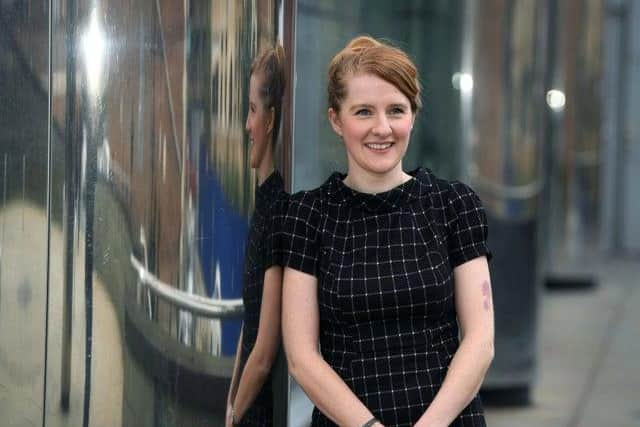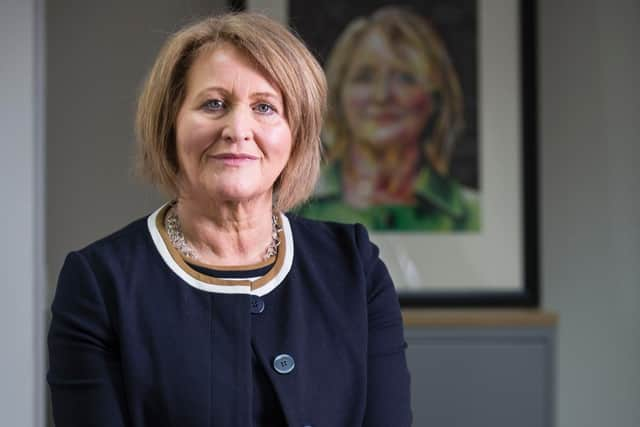Moment in time to investment in early years workforce, Northern Charity says


The call to action comes as a report suggests the presence of a university graduate in an early years setting is associated with positive attainment gains among children.
These improved learning outcomes among young children persisted as they made their way through primary school and remained all the way up to Year 6, according to the Education Policy Institute (EPI) research.


Advertisement
Hide AdAdvertisement
Hide AdThe Government should focus its efforts on boosting the quality of the early years workforce and improving the number of graduates in nurseries, pre-schools and childminders, the think tank says.
Fiona Spellman, the chief executive of the Northern education charity SHINE, echoed the call and said long term investment could aid with closing the achievement gap between children from poorer homes and their peers.
She said: "At SHINE we strongly believe that the early years should be prioritised as a crucial developmental, and educational, phase.
"Nearly a third of children start school well behind their peers and the majority are from disadvantaged backgrounds.


Advertisement
Hide AdAdvertisement
Hide Ad“Focusing on a child’s early years is highly effective at reducing this attainment gap and costs much less than tackling it at a later stage, in secondary school.
"Significant investment is needed in the early years workforce, and this should include the employment of many more graduates, as well as more in-work progression opportunities."
The link between a child attending early years settings with a graduate and higher attainment scores is bolstered if the child spends more hours in early years education, according to the EPI report.
Ms Spellman added: "There is strong evidence that a well-trained, highly qualified early years workforce, with access to ongoing professional development, is vital to closing the achievement gap between children from poorer homes and their peers.
Advertisement
Hide AdAdvertisement
Hide Ad"Working in the early years should not be a less well-paid, lower-status and less-skilled job than working with older children."
While welcoming the new report Anne Longfield, the Children's Commission for England, stressed the need for the Government to extend the funded childcare for all children up to the age of five to aid the recovery from the coronavirus pandemic.
She also wants to see a clear plan to make sure that early years professionals have the appropriate training, pay and opportunities for progression.
Mrs Longfield, who has worked with vulnerable and disadvantaged children for more than 30 years, said: "To genuinely improve children’s life chances we need to start early, and high quality early years education is a vital part of that.
Advertisement
Hide AdAdvertisement
Hide Ad"As this report acknowledges, high-quality early education alone won’t close the gap between disadvantaged children and their peers, and a robust system of support for families with young children is still essential."
Meanwhile, the think tank is calling for a review of early years degrees to explore how they can be enhanced after separate research suggested that degree choices in the sector are highly fragmented.
A Department for Education (DfE) spokeswoman said: "We have invested £20m in improving the training and development available for staff working in early years, particularly targeted at those working in disadvantaged areas, and we are supporting their career progression through better qualifications, more apprenticeship opportunities and routes to graduate level qualifications.
"We know that the first few years of a child's life are vital for development especially for building up good speech, language and communications skills that children will use for the rest of their lives."
Addtional reporting PA Media.
________________
Support The Yorkshire Post and become a subscriber today.
Advertisement
Hide AdAdvertisement
Hide AdYour subscription will help us to continue to bring quality news to the people of Yorkshire. In return, you'll see fewer ads on site, get free access to our app and receive exclusive members-only offers. Click here to subscribe.
Comment Guidelines
National World encourages reader discussion on our stories. User feedback, insights and back-and-forth exchanges add a rich layer of context to reporting. Please review our Community Guidelines before commenting.
